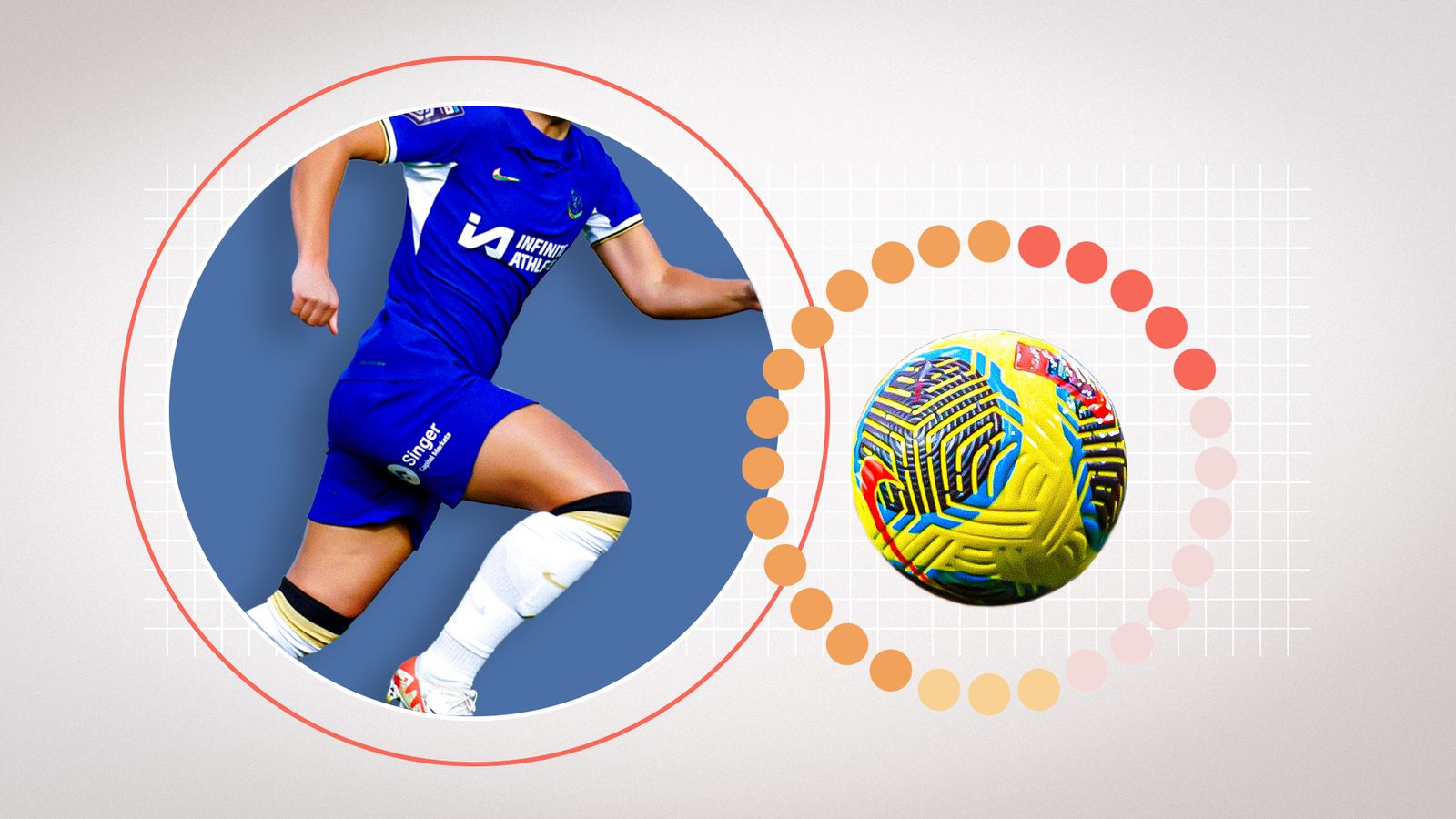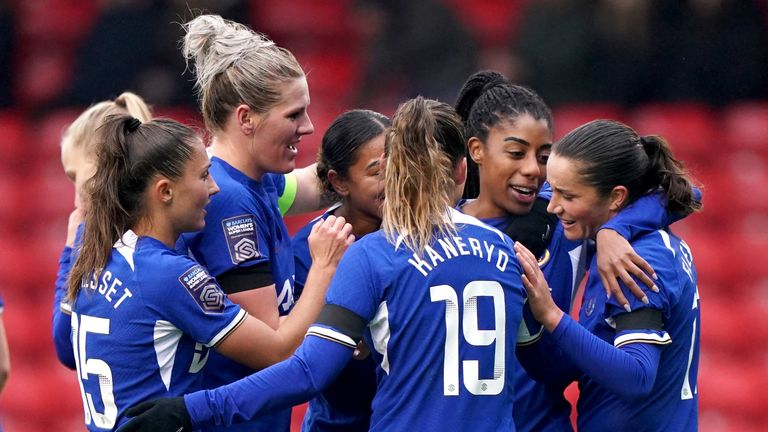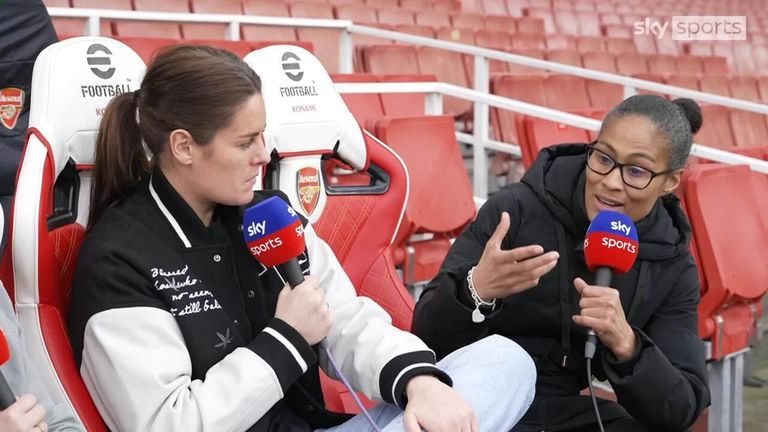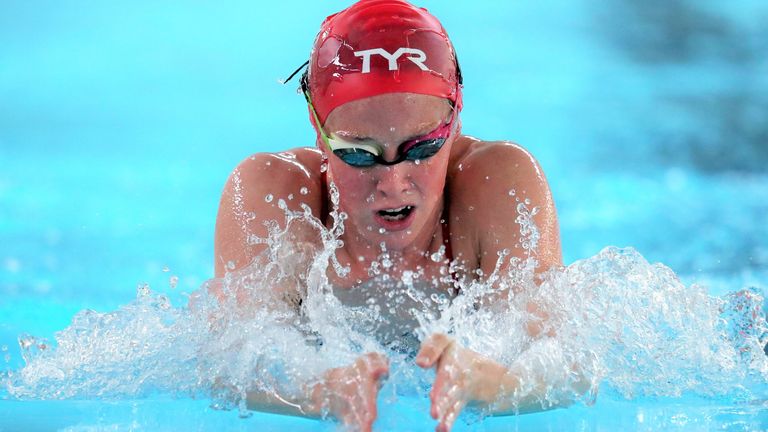[ad_1]
Menstrual cycle tracking data and a greater understanding of links to performance could become a marginal gain professional women’s football clubs use to set themselves apart from competitors in the future.
That is just one of a number of advantages that clubs can benefit from in the near future following a series of initiatives being launched by the Football Association alongside the UK’s leading female athlete experts in the Well HQ.
The vision is a ‘best in class’ approach to female-specific health across the Women’s Super League and Women’s Championship – and nothing is off limits.
From tackling taboos including pelvic floor and breast health to pregnancy and post-natal care, the array of extensive projects aim to arm everyone involved in the professional women’s game with improved knowledge and support in an area which has been underfunded and under-resourced across women’s sport.
Menstrual cycle health is one of three topics to be explored in the ‘best practice guidelines’ project, and one that could provide clubs with essential performance data to maximise results on the pitch.
The USA tracked their periods for peak performance during their World Cup win in 2019, while Chelsea and other Women’s Super League clubs use menstrual cycle apps to tailor training around players’ periods.
“Whether you are a Chelsea or a club less resourced, there are some important principles to supporting female athletes that we want everyone to be able to share, discuss and do,” Dr Emma Ross, co-founder of The Well HQ which addresses inequalities in women and girls in sport, told Sky Sports.
“The way you get a competitive advantage is how you choose to do that. That is what is exciting for us to see how clubs can take the idea that every player should be tracking their menstrual cycle and there’s a reason why and that there is a use of that data that is valuable to the player and to the coaches. How clubs choose to do that will be exciting to see, in terms of how they use it as a competitive advantage.
“But the fact the FA provides that data and a management tool means there is a way of collecting menstrual cycle data for example as well as other metrics of health performance and for me that’s an exciting opportunity in the future to start answering performance questions.
“If performance questions come up, ‘is time of the cycle related to X,Y,Z’, suddenly we’ve got a data system which includes menstrual cycle information and that then allows us to be forward in our knowledge and our understanding of the players.”
The overarching intention of the substantial three-pronged project is to listen to the players and coaches, and to raise the knowledge and information available for everyone involved in the game.
The FA and Well HQ have been working together for four years now and a ‘State of Play’ report shared in 2022 established the key areas and recommendations to explore.
“The brilliant bit about this whole subject is that it started by asking players, coaches, practitioners what’s your experience of being a woman in football, of talking about your menstrual cycle or finding the right sports bra,” Ross said.
“It really listened to the voices of the people on the ground and everyone was eager and enthusiastic to share stories. Everyone was very honest – even down to medical and science practitioners being honest about the limit of their current knowledge and that’s where we really identified a need.
“The sports science and medicine staff were saying that we know about football and know about athletes, but this layer of understanding the female body is something that hasn’t been explained to us enough.
“So part of the design of the whole programme is, let us raise everyone’s knowledge in the game about women’s bodies, how they work physiologically, mind mechanically and what that means for football. The insights are really driven, the detail of the project and all the topics that we cover have been driven by the players. They are saying ‘this is where we have issues’, this is where we need understanding.”
While one part of the project has been launched in ‘FootballHER: CPD For All’, an online course for WSL and Championship support staff, the next step is to appoint ‘female health leads’ at each club.
“Football is the first sport to have mandated training specifically around women’s health which is again ground-breaking,” Ross added.
“The ambition of the female health leads is that they get an extra layer of knowledge but fundamentally we’re going to work with them to identify what strategy for improving women’s sport health is in the context of their club.
“Because we know across the Women’s Championship and Women’s Super League that the breadth of resources, experiences, size of multidisciplinary teams and the level of players is different. So what’s really thoughtful about this approach is not that ‘this is what a female health strategy looks like in a football club’, it’s what it looks like for your club that will add value to you and your players.”
The idea will be to educate all, male and female members of clubs around women’s health to “break down the perception” that it is only considered a women’s space and to make sure everyone feels safe and secure having conversations which are still “shrouded in a bit of taboo and embarrassment”.
It is the next step into the unknown for a league which has made strides since turning professional in 2018 but is also willing to learn from mistakes as they go.
Putting vital research and resources into women’s health in football is a key part of that plan.
Andy Hudson, performance support manager for the women’s professional game, said: “Female athlete health is a key focus for us across women’s professional football and we are fully committed to supporting and improving this area of the game.”
Ross echoed those sentiments: “I can’t understate how exciting it is that a sport has taken this on board, so strategically, systematically, whole-heartedly the idea to support women’s health as an integral part of their support package.
“We work with a lot of sports. This has taken it from insight, into how we’re going to deliver it as everyday practice. The FA should be used as that flagship as what does women’s sport look like when it does women’s sport really well, my ambition [for the project and year ahead] is that we get to say, this is what it looks like.”
[ad_2]
Source link







